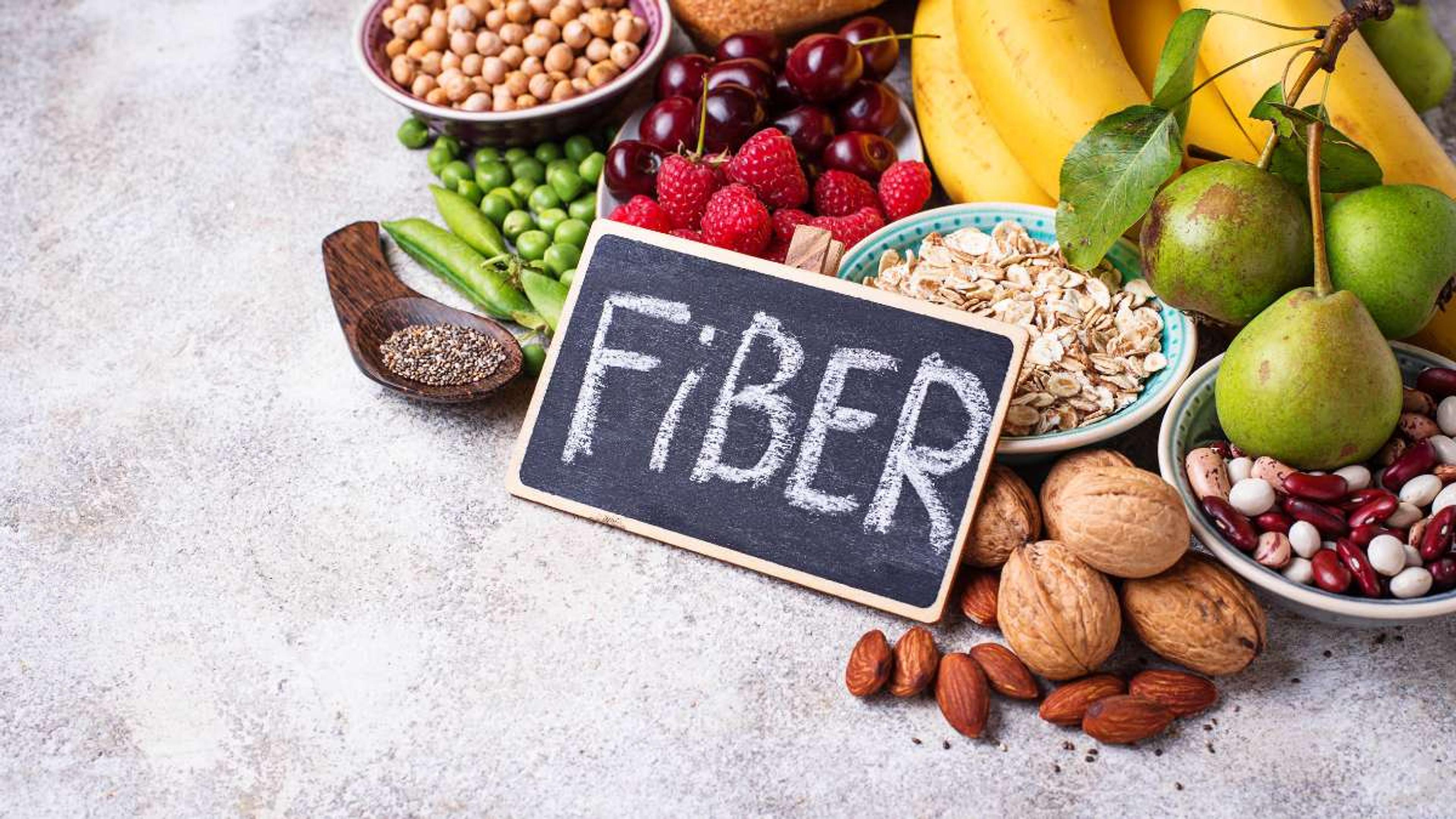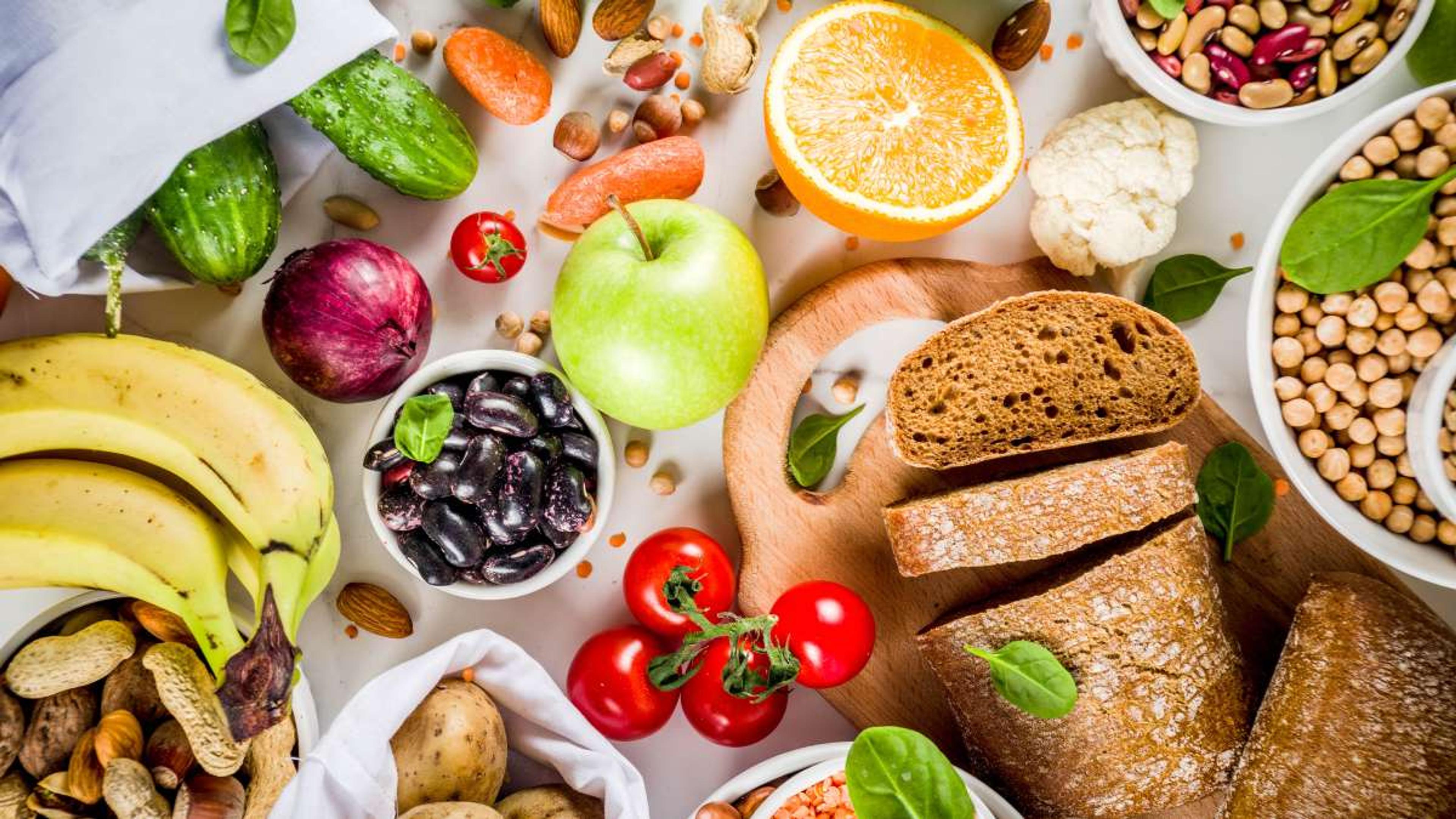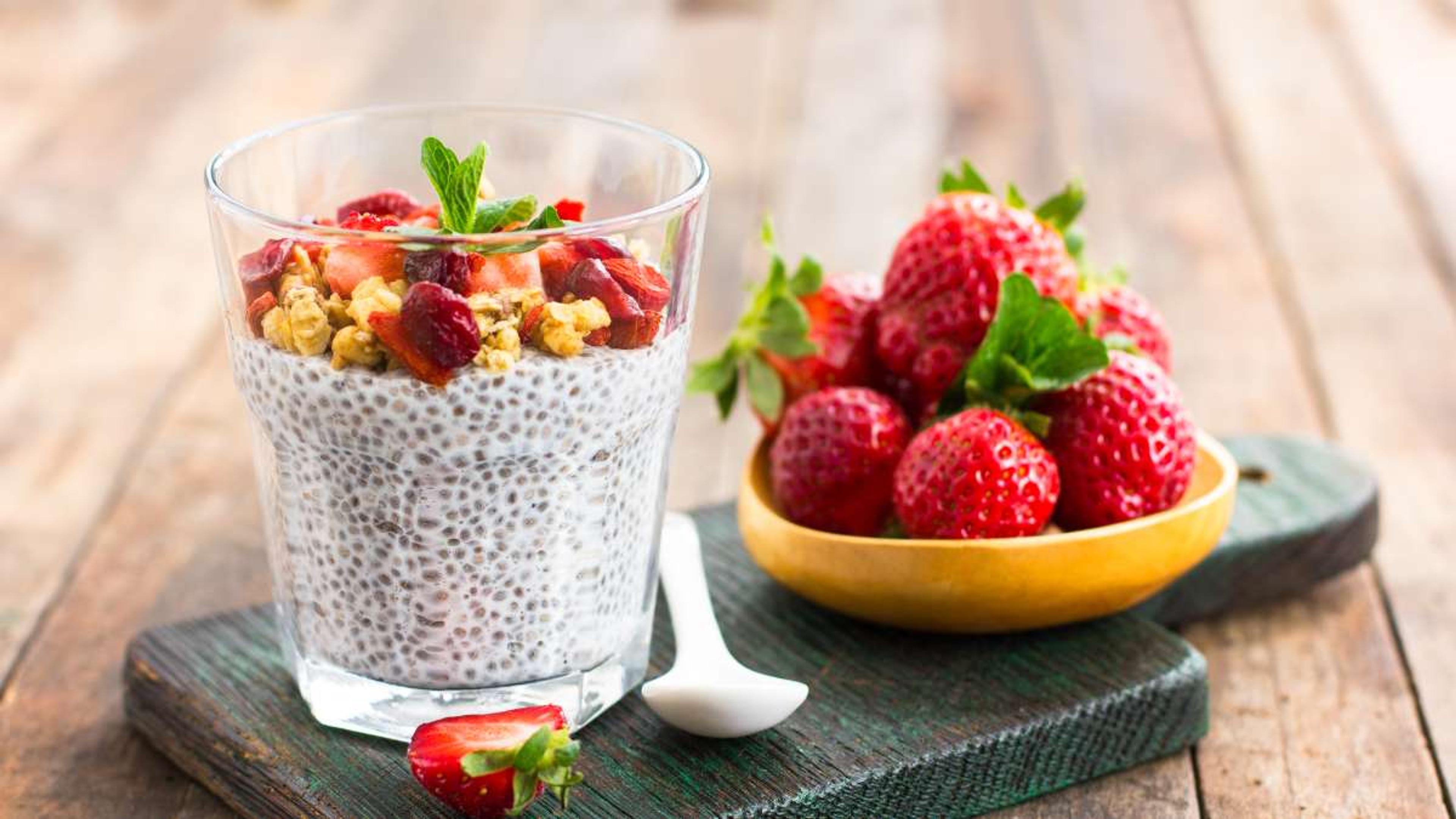High Fiber Vegan Foods: A Comprehensive Guide

- Key Takeaways
- The Importance of Fiber in a Vegan Diet
- Top High-Fiber Vegan Foods
- 6 Ways to Increase Fiber Intake in a Vegan Diet
- Challenges and Solutions of a High-Fiber Vegan Diet
- Conclusion
- FAQs
Are you a vegan looking for ways to boost your fiber intake? It's fascinating to know that plant-based foods, being rich in indigestible carbs, are major sources of dietary fiber. In this article, we'll explore high-fiber vegan foods and introduce easy strategies to incorporate them into your daily meals.
Get ready for healthier digestion and an overall well-balanced diet!
Key Takeaways
- High-fiber vegan foods are rich in indigestible carbs and are important for a well-balanced diet and healthy digestion.
- Fiber plays a crucial role in the body, including lowering cholesterol, regulating blood sugar levels, and preventing diseases like diabetes and heart disease.
- Recommended daily fiber intake varies by age and sex, but most American adults fall short of the recommended amount.
- Top high-fiber vegan foods include legumes (like lentils and chickpeas), whole grains (such as oats and quinoa), fruits (like avocado and raspberries), vegetables (including broccoli and kale), nuts/seeds (like almonds and chia seeds).
- Ways to increase fiber intake in a vegan diet include incorporating vegetables into every meal, adding chia/flax seeds to smoothies, choosing whole-grain bread/rice over refined options, including lentils/beans in meals, making better food choices by avoiding processed foods, snacking on fresh fruits/vegetables.
- Challenges of high-fiber vegan diets include managing gas/bloating from certain foods; solutions may involve cooking legumes thoroughly or using digestive aids like ginger or fennel.
The Importance of Fiber in a Vegan Diet
Fiber and its role in the body
Fiber, simply put, is a type of carbohydrate that our bodies cannot fully break down and digest. Instead of being absorbed into the bloodstream like other carbs, fiber passes through the digestive system and keeps it in shape. This unique characteristic of fiber plays a crucial role in our overall health and well-being, including nutrition. There are two types, soluble and insoluble fiber.
Soluble fiber dissolves in water and forms a gel-like substance in the digestive tract. It helps to slow down digestion, lower cholesterol, and aids in regulating blood sugar levels. Soluble fiber is found in foods like oats, legumes, and fruits.
On the other hand, insoluble fiber does not dissolve in water and makes stools softer and larger so they pass more easily. It helps to prevent constipation and promotes regular bowel movements. Insoluble fiber is commonly found in whole grains, vegetables, and nuts/seeds.
Eating foods rich in fiber may also protect you from various diseases like diabetes, heart disease, and even some cancers!
Health benefits of consuming enough fiber
Consuming enough fiber in your vegan diet can have numerous health benefits.
- A high-fiber diet is its ability to support digestive health. Fiber adds bulk to your stools, promoting regular bowel movements and preventing constipation. This not only keeps your digestive system functioning smoothly but also reduces the risk of developing hemorrhoids.
- Another benefit of fiber is its impact on heart health. Soluble fiber has been shown to help lower cholesterol levels by binding with cholesterol in the digestive system and preventing it from being absorbed into the bloodstream. By lowering LDL (bad) cholesterol, fiber helps reduce the risk of heart disease and stroke.
- A high-fiber vegan diet can contribute to weight management. Fiber-rich foods are often low in calories but high in volume, making you feel fuller for longer and reducing the chances of overeating. This can be especially beneficial for those looking to lose or maintain weight.
- Fiber plays a crucial role in regulating blood sugar levels. Soluble fiber slows down the absorption of sugar into the bloodstream, preventing spikes in blood sugar levels and helping to manage diabetes.
By incorporating high-fiber vegan foods such as root vegetables into your diet, you can enjoy these numerous health benefits while simultaneously contributing to a more sustainable and cruelty-free lifestyle.
Recommended daily fiber intake for different age groups
The recommended daily fiber intake varies according to age and sex. Understanding these variations can help individuals appropriately plan a high-fiber vegan diet.
- 14-18 years - 31 grams (Men), 26 grams (Women)
- 19-30 years - 33.6 grams (Men), 28 grams (Women)
- 31-50 years - 28 grams (Men), 25.2 grams (Women)
- 51 years & above - 28 grams (Men), 22.4 grams (Women)
These guidelines are based on the Food and Drug Administration's recommendation of a Daily Value of 28 grams of fiber per day for adults on a 2,000-calorie diet. The USDA recommends a daily fiber intake of 25 grams for adults aged up to 50 years. Despite these recommendations, most American adults consume only 10 to 15 grams of fiber per day, falling short of the recommended amount. Therefore, it's crucial to include high fiber foods in a vegan diet to meet these recommended daily intakes.
Top High-Fiber Vegan Foods

1. Legumes
Legumes, such as beans, kidney beans, lentils, and peas, are fabulous for adding fiber to a vegan diet. They are packed with essential nutrients like protein, B vitamins, iron, copper, magnesium, manganese, zinc, and phosphorous. Hummus, a popular dip made from chickpeas, is a great way to incorporate legumes into your diet.
What's more? They're low in fat and contain fermentable fibers that help keep your digestive system healthy. In particular,lentils,chickpeas,and black beans stand out as excellent sources of both fiber and protein,making them highly recommended for vegans who want to ensure they're getting enough nutrients in their diet.
2. Whole grains
Whole grains, like quinoa, brown rice, oats, and barley, are excellent sources of fiber. Fiber is an essential part of our diet that helps keep our digestive system healthy and prevents constipation.
Additionally, whole grains are rich in complex carbohydrates and provide vitamins, minerals, antioxidants, and dietary fiber. Swapping refined grains for whole grains can significantly increase our fiber intake.
Some common whole grain foods include whole wheat bread, oatmeal, brown rice, and wild rice. So next time you're making a meal or snack choice, consider opting for whole grain options like overnight oats to boost your fiber intake and reap the many health benefits they offer!
3. Fruits
Fruits are a delicious and nutritious addition to a high-fiber vegan diet. They provide essential vitamins, minerals, and antioxidants while also being rich in dietary fiber. Passion fruit takes the lead as the highest source of fiber, containing 24.5 grams per cup. Another good source of fiber is a medium pear, which contains 5.5 grams of fiber and is a tasty addition to any meal.
Berries like blackberries are not only high in fiber but also low in sugar and calories, making them an excellent choice for those watching their weight. Avocado is another good source of both fiber and healthy fats, making it a versatile option for adding to salads or spreading on toast.
Apples and dried fruits such as prunes are also great choices when looking to increase your fiber intake. And let's not forget about classic favorites like bananas, blueberries, and pears - they may be common fruits but they still pack a decent punch when it comes to fiber content! So next time you're reaching for a snack or planning your meals, make sure to include some delicious fruits that will keep your digestive system happy while providing numerous health benefits!
4. Vegetables
Some vegetables are excellent sources of fiber, which is important for a healthy vegan diet. Carrots, broccoli, beetroot, cauliflower, bitter gourd, eggplant, and collard greens are all high in fiber.
By including these vegetables in your meals and snacks, you can increase your fiber intake. Adding them to soups or salads is a great way to enjoy their health benefits while also getting the necessary dietary fiber.
Remember that different vegetables have varying amounts of fiber content, so it's good to try a variety of them to get enough fiber in your diet.
5. Nuts and seeds
Nuts and seeds are excellent high-fiber vegan foods that offer many health benefits. They contain unsaturated fats, which are good for preventing heart disease and diabetes. Chia seeds, flax seeds, sesame seeds, pumpkin seeds, and others are among the top nuts and seeds with high fiber content.
Nuts and seeds also provide essential nutrients and protein concentrations. As a result, they are a great addition to a plant-based diet that relies on vegetables, grains, fruits, and excludes animal-derived foods.
6 Ways to Increase Fiber Intake in a Vegan Diet

1. Incorporate vegetables in every meal
To increase your fiber intake in a vegan diet, it is important to include vegetables in every meal. Vegetables are low in calories and packed with fiber, making them an excellent choice for increasing your daily intake.
Non-starchy vegetables like broccoli, cauliflower, and Brussels sprouts are especially high in fiber. By incorporating these veggies into your meals regularly, you can easily boost the amount of fiber you consume each day.
So whether it's adding spinach to your morning smoothie or enjoying a salad with lunch and dinner, make sure to fill up on vegetables for optimal fiber intake.
2. Add chia seeds and flax seeds to smoothies
Chia seeds and flax seeds are two great additions to your smoothies if you're looking to increase your fiber intake on a vegan diet. These tiny seeds are highly nutritious and packed with fiber, protein, omega-3 fatty acids, and various micronutrients.
Chia seeds, in particular, contain the most grams of fiber per ounce and are especially rich in soluble fiber. Just one ounce of chia seeds can provide over a third of your daily fiber needs! So, try sprinkling some chia or flax seeds into your favorite smoothie recipes for an easy boost of fiber goodness.
3. Choose whole-grain bread and rice
Whole-grain bread and rice are excellent choices to include in a high-fiber vegan diet. Unlike refined grains, whole grains contain more fiber, which is good for our digestion. They can help us feel fuller for longer after meals.
Choosing whole-grain bread instead of white bread or opting for brown rice rather than white rice can increase our daily fiber intake. Whole grains also have other health benefits, like reducing the risk of heart disease and improving blood cholesterol levels.
So, next time you're shopping for groceries, remember to choose whole-grain options!
4. Include lentils, peas, or beans in meals
Lentils, peas, and beans are a great addition to meals to increase fiber intake in a vegan diet. These legumes are not only rich in plant-based protein but also packed with fiber, folate, and potassium.
Including lentils, peas, or beans in your meals can help you meet your daily fiber needs and keep you feeling full for longer periods of time. Moreover, consuming legumes regularly may assist with weight management.
They can be enjoyed in various dishes such as soups, stews, curries, or even as a side dish. So why not add some lentils or beans into your next meal for a healthy boost of fiber?.
5. Make better food choices and reduce processed foods
To increase your fiber intake and improve your vegan diet, it's important to make better food choices and reduce processed foods. Many processed foods are low in fiber and high in unhealthy ingredients like added sugars, unhealthy fats, and sodium.
Instead, opt for whole plant-based foods that are naturally rich in fiber, such as fruits, vegetables, whole grains, legumes (like beans and lentils), nuts, and seeds. These types of foods not only provide essential nutrients but also contribute to a healthy digestive system.
So try to incorporate more of these nutritious options into your meals and snacks while minimizing or avoiding processed foods as much as possible.
6. Snack on Fresh Fruits and Vegetables
Snacking on fresh fruits and vegetables is a simple and effective way to increase your fiber intake in a vegan diet. Foods like pears, raspberries, avocados, and almonds are all natural sources of fiber that can be enjoyed as healthy snacks.
These plant-based options not only provide fiber but also offer essential vitamins and minerals. Plus, snacking on fresh fruits and vegetables is a recommended practice for overall health, making it an easy addition to any vegan diet.
So go ahead and enjoy some crunchy carrots or a refreshing apple to boost your fiber intake throughout the day!
Challenges and Solutions of a High-Fiber Vegan Diet
Managing Gas and Bloating. Learn how to overcome common challenges in maintaining a high-fiber vegan diet for optimal health. Read more now!

Managing Gas and Bloating
High-fiber vegan foods, such as beans and legumes, can sometimes cause gas and bloating in some people or if taken excessively. This is because these foods contain complex carbohydrates that our bodies may find difficult to digest.
Cruciferous vegetables like broccoli and Brussels sprouts are also known to cause more bloating compared to other plant-based foods. To manage gas and bloating while following a high-fiber vegan diet, it's important to make dietary adjustments slowly.
Gradually increase your fiber intake over time to allow your digestive system to adjust. Drinking plenty of water throughout the day can also help with digestion. Additionally, cooking or soaking beans before consumption can reduce their gas-producing properties.
Ensuring Adequate Water Consumption
Consuming a high-fiber vegan diet is important for your health, but it's also crucial to make sure you're drinking enough water. Water plays a vital role in digestion and absorption of nutrients from the fiber-rich foods you eat.
Without sufficient water intake, increasing your fiber consumption can lead to problems like constipation and digestive discomfort. To prevent this, aim to drink at least 8 cups (64 ounces) of water per day while following a high-fiber vegan diet.
Additionally, including hydrating foods like fruits and vegetables in your meals can help meet your water intake needs and support overall hydration levels.
Considering Vitamin and Mineral Supplementation
Vegans and vegetarians may need to consider taking vitamin and mineral supplements to ensure they are meeting their nutritional needs. Since these diets can be lacking in certain essential nutrients like protein, iron, calcium, and zinc, supplements can help fill those gaps.
In particular, vitamins B12 and D, zinc, and calcium are often recommended for supplementation because they may not be adequately obtained through plant-based foods alone. By taking these supplements regularly, vegans can address potential nutrient deficiencies and maintain a balanced diet that supports their overall health.
Variety and Fiber Supplements
Incorporating a variety of high-fiber foods in a vegan diet is essential for achieving the recommended daily fiber intake. This includes consuming legumes, whole grains, fruits, vegetables, and nuts or seeds.
These plant-based foods not only provide ample amounts of fiber but also offer additional health benefits due to their rich nutrient content. However, it is important to note that relying solely on fiber supplements may not be as beneficial as obtaining fiber from whole food sources.
While supplements can help increase fiber intake in some cases, they do not provide the same array of nutrients found in whole foods. Therefore, it is always best to prioritize a diverse range of high-fiber plant-based options to ensure optimal health and well-being on a vegan diet.
Conclusion
Incorporating high fiber vegan foods into your diet is essential for overall health and well-being. By consuming a variety of plant-based foods such as legumes, whole grains, fruits, vegetables, nuts, and seeds, you can easily meet your daily fiber needs.
These foods not only provide numerous health benefits but also help keep you feeling full and satisfied. So why not start adding more fiber-rich vegan options to your meals today? Your body will thank you!
FAQs
1. What are some high fiber vegan foods?
Some high fiber vegan foods include fruits like apples and berries, vegetables like broccoli and Brussels sprouts, legumes such as lentils and chickpeas, whole grains like quinoa and brown rice, and nuts/seeds like chia seeds and almonds.
2. How much fiber should I consume daily from vegan foods?
It is recommended to consume around 25-30 grams of fiber per day from a variety of vegan food sources to promote healthy digestion and overall well-being.
3. Can a high-fiber vegan diet help with weight management?
Yes, a high-fiber vegan diet can aid in weight management because it helps you feel fuller for longer periods, reduces cravings for unhealthy snacks, and promotes healthy bowel movements.
4. Are there any potential side effects of consuming too much fiber from vegan foods?
Consuming excessive amounts of fiber from vegan foods may lead to bloating, gas or stomach discomfort. It's important to increase your intake gradually while also drinking enough water throughout the day to maintain proper digestion.

